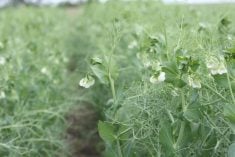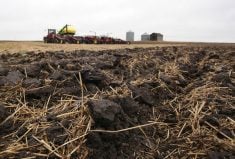WINNIPEG — Sustainable agriculture is important, but federal priorities for agricultural research are out of balance, says the agriculture critic for the Conservative Party of Canada.
If the Tories take power following the next election, they will take steps to restore the balance between production and environmental goals in agriculture research.
“We’re not going to be abandoning what sets Canada apart. That is our record in terms of sustainability and emissions reduction,” said John Barlow, MP for the Foothills riding in Alberta.
Read Also

Short rapeseed crop may put China in a bind
Industry thinks China’s rapeseed crop is way smaller than the official government estimate. The country’s canola imports will also be down, so there will be a lot of unmet demand.
“Sustainability is important, but growing yield, growing production and economic viability should be just as important as environmental sustainability.”
For much of the last five years, the federal government has said the agriculture industry must do its part and reduce the methane and nitrous oxide emissions from Canadian farms.
To fulfil that mandate, Agriculture Canada set targets to cut emissions from nitrogen fertilizer and methane from cattle. It also created requirements where a percentage of research dollars must be dedicated to climate change mitigation.
“This is why under the Sustainable Canadian Agriculture Partnership (SCAP) a minimum of 30 per cent of the overall AgriScience Cluster costs must be geared towards activities that focus primarily on the environment — of which 15 per cent of the overall Cluster costs must address GHG emissions,” the feds said earlier this year in an email to the Western Producer.
SCAP is a $3.5 billion funding agreement between the federal government and the provinces, which runs from 2023 to 2028.
Many commodity associations that spend a portion of their check-off dollars on research projects are frustrated with the federal requirements.
Farmers are dealing with disease, pests and other agronomic problems, and directing money away from such research is detrimental, say some industry leaders.
“It does create a challenge, of course, because certainly (climate change is important,) but we also have growing demand for canola so we need to be looking at this beyond just reducing emissions, and research is a critical component of that,” said Gayle McLaughlin, a Canadian Canola Growers Association lobbyist in Ottawa.
Some members of the Liberal government have listened to the feedback.
In a report published last year on fertilizer emissions targets, former agriculture minister Marie-Claude Bibeau said there must be a balance between production and the environment.
“Fertilizers are an essential input for farmers. We need to ensure that our efforts to reduce emissions do not undermine their competitiveness or their vital work, especially at a time when food insecurity has reached unprecedented levels worldwide.”
Other ministers favour the narrative that Canadian agriculture is an environmental problem. That doesn’t align with the evidence, said Barlow.
A University of Saskatchewan report released last January said carbon emissions are relatively low on western Canadian farmland and Saskatchewan farmers “produce some of the world’s most sustainable crops.”
“(It) shows compared to other jurisdictions of the world, that Canada is the gold standard. The world leader. So why all this self-flagellation by the federal government, by imposing these very strict guidelines or guardrails on research funding?” Barlow said from his Ottawa office.
“Let’s be a champion for what we’re doing.”
















